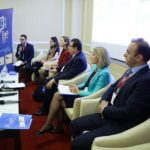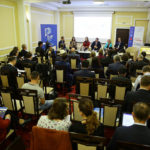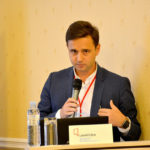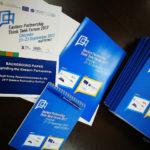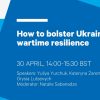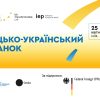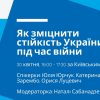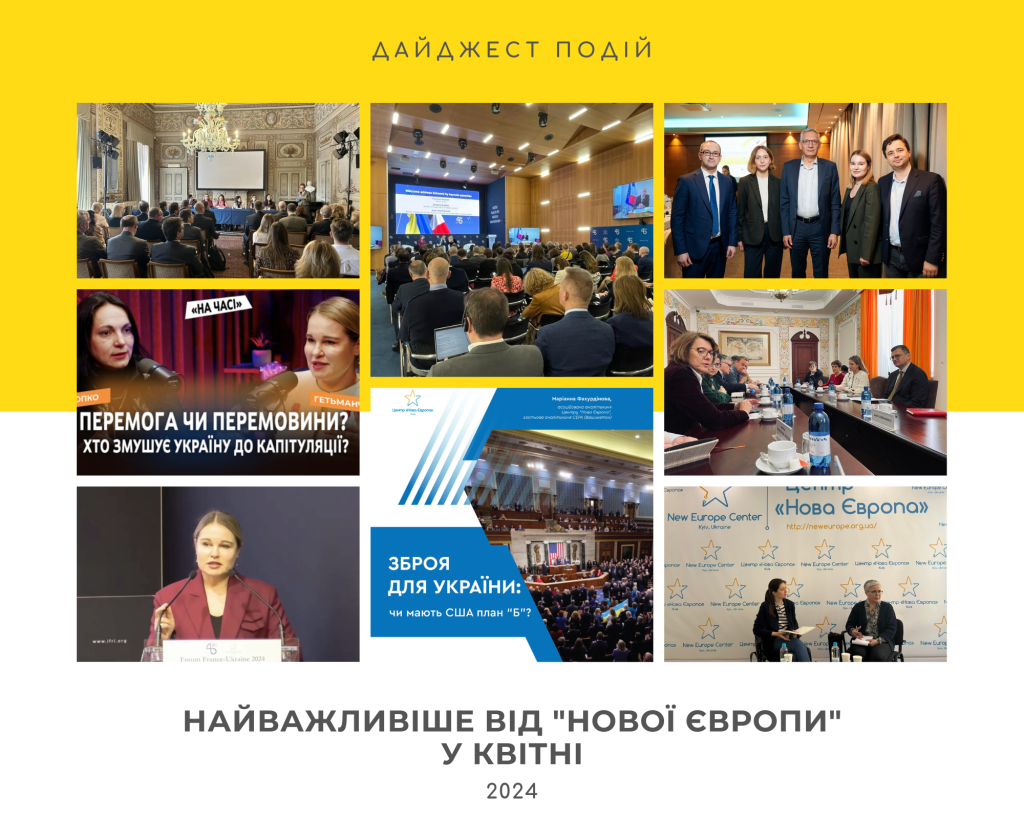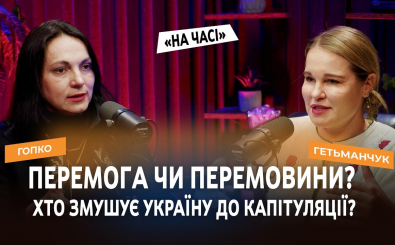Even before the official launch, NEC co-organized the first Eastern Partnership Think Tank Forum, held in Chișinău. The aim of the Forum was to better connect think tanks across the EU and six countries of the Eastern Partnership for a maximum impact on their research, policy-making and advocacy efforts in promoting Europeanisation in our region.
Over 60 leading experts representing the think tank community discussed the challenges and perspectives of the future relations of the EaP countries with the EU. During the event, Leonid Litra, NEC Senior Research Fellow, presented a draft set of policy recommendations for the upcoming Eastern Partnership Summit to be held in late November in Brussels.
The results of the policy debates were incorporated in the final Policy Recommendations, which will be further discussed in the framework of the EaP CSF and promoted with the EU institutions, EU member states and EaP countries in due time before the Summit in Brussels.
The Forum addressed the following issues:
- Bridging Think Tanks in Europe – A way forward – What are the best practices and lessons learned offered by existing think-tank partnerships in Europe on the regional and/or European levels (i.e. EU Black Sea, Visegrad, Baltic and Western Balkan regions)? What are the main challenges and opportunities to be addressed by the think-tank community from the EU and Eastern Partnership countries? How could EaP Think Tank Forum add value to the EaP Civil Society Forum in building capacity of policy research and advocacy activities? How to strengthen Think-Tank – NGOs partnerships?
- The Future of Eastern Partnership: Challenges and Perspectives – The upcoming EaP Summit in Brussels will review the results since the Riga Summit 2015 and set up objectives for the future of the EaP. The ENP was reviewed in 2015. A new EU Global Security Strategy was issued in 2016, which also aims to strengthen resilience in the EaP region. What are the main achievements and backlogs of the EU’s EaP Policy? What are the key internal and external challenges that EaP countries are facing? How these challenges could be addressed? What the EU and EaP countries should do to strengthen resilience and secure a sustainable Europeanisation process? What are the perspectives for the non-Associated EaP partners?
- Eastern Partnership Deliverables by 2020 and Beyond – In December 2016 the European Commission and the EEAS has issued the Joint Staff Working document „Eastern Partnership: 20 Deliverables for 2020, which have been reviewed and approved in the meantime by the EaP Ministerial on June 19th, 2017. Are the suggested deliverables ambitious enough and are they sustainable, looking beyond 2020? Are they resonating with the expectations of the EU and EaP partner countries? Will they effectively address the current challenges of the EaP policy and strengthen resilience in the EaP countries?
The Forum was organised within a project funded by the EU and National Endowment for Democracy (NED) through the EaP CSF Re-granting Scheme 2017 and co-financed by Konrad Adenauer Stiftung (KAS).
Lear more here: www.ipre.md/eapttf2017



